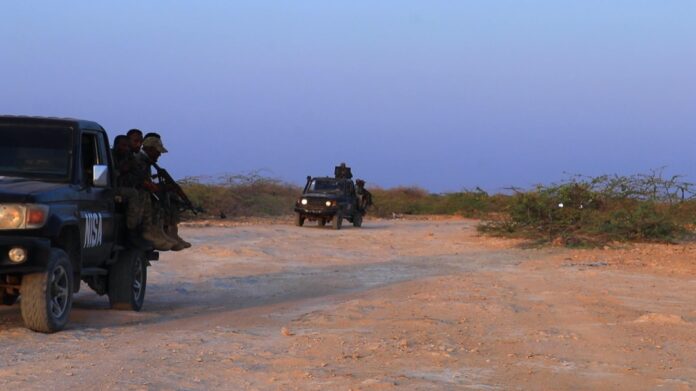MOGADISHU, Somalia — The National Intelligence and Security Agency (NISA) of Somalia executed a targeted operation in the Yaaqle village area, northeast of Bal’ad town in the Middle Shabelle region, resulting in the death of 19 Al-Shabaab militants.
This strike was specifically aimed at a known assembly point for the militants, aiming to disrupt their organizational capabilities significantly. NISA’s actions reflect a strategic intent to not only dismantle Al-Shabaab’s operational bases but also to intercept their plans before they can execute attacks.
The operation underscores the persistent and intensified efforts of Somali security forces to counteract the influence of Al-Shabaab, an Al-Qaeda affiliate, which has been actively trying to undermine stability in Somalia and the broader region.
Al-Shabaab has recently escalated its campaign of violence, targeting both civilian and military sites to demonstrate its reach and assert its control over territories.
While NISA reported a successful operation, local reports suggest there might have been casualties on the side of the security forces as well, indicating the fierce and unpredictable nature of these engagements.
The variance in casualty figures often reflects the challenges in obtaining accurate information in conflict zones, where information can be controlled or manipulated.
The broader context of this operation is part of Somalia’s ongoing struggle against Al-Shabaab, which has controlled large swathes of rural areas, imposing its strict interpretation of Islamic law and engaging in extortion, while also launching attacks in urban centers like Mogadishu.
The international community, including the African Union and the United States, has been supporting Somalia’s fight against Al-Shabaab through military training, airstrikes, and strategic assistance. Despite these efforts, Al-Shabaab remains resilient, adapting its tactics to include guerrilla warfare, ambushes, and sophisticated IED attacks.
The significance of this operation extends beyond immediate military gains; it’s part of a broader narrative to reassure local populations and the international community of the government’s resolve to combat terrorism. However, the continuous threat posed by Al-Shabaab, coupled with the complex socio-political landscape of Somalia, means that military operations alone are insufficient. Addressing underlying issues such as governance, economic development, and community reconciliation remains crucial for long-term stability.
The conflict with Al-Shabaab, therefore, continues to be a critical issue for regional security, affecting not just Somalia but its neighbors and international partners involved in peacekeeping and counter-terrorism efforts in the Horn of Africa.






